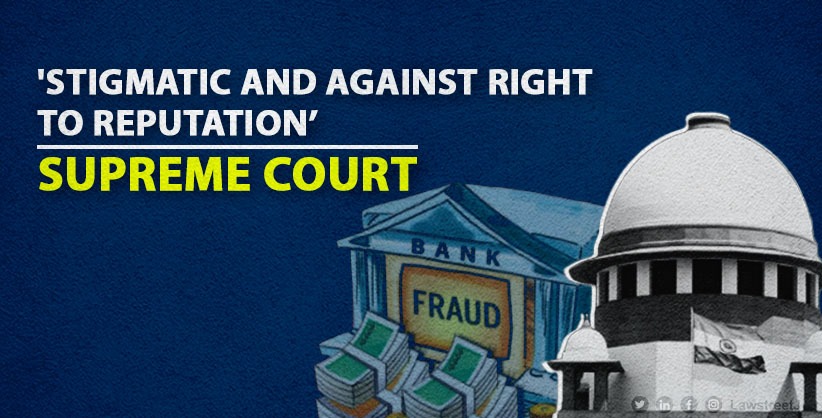NEW DELHI: The Supreme Court on Monday mandated banks are to give a personal hearing to borrowers before classifying their account as fraudulent in terms of the RBIs Master Circular of July 1, 2016, as decision by lenders was stigmatic and affected their right to reputation.
It also said debarring the borrowers from accessing institutional finance results is akin to blacklisting the borrowers for being untrustworthy and unworthy of credit by banks.
In its judgement, a bench of Chief Justice of India D Y Chandrachud and Justice Hima Kohli, however, clarified said that no opportunity of being heard is required before lodging an FIR.
The top court rejected appeals filed by both RBI and the SBI-led consortium of lenders, while upholding the Telangana High Courts December 10, 2020 judgement which directed lenders to include principles of natural justice into the RBIs Master Direction on Frauds Classification and Reporting by Commercial banks and select FIs so as to afford opportunity to the affected party/person to present their case.
The bench said the top court had consistently held that an opportunity of hearing ought to be provided before a person is blacklisted.
As per the principles of natural justice, the borrowers must be served a notice, given an opportunity to explain the conclusions of the forensic audit report, and should be allowed to represent by the banks/ joint lenders forum (JLF) before their account is classified as fraud, it said.
In addition, the decision classifying borrower bank account as fraudulent must be made by a reasoned order as it carries serious civil consequences, it added.
In their arguments, the RBI and the lenders contended that giving such opportunity to the borrower before classifying and reporting loan frauds may defeat the very purpose of the 2016 circular, that is, early detection of fraud and prompt reporting.
A group of affected borrowers, in their arguments, contended the Master Directions on Frauds are violative of Articles 14, 19, and 21 of the Constitution as they debar a company and its promoters and directors from accessing financial and credit markets for a period of five years without even providing a show cause notice or opportunity of being heard.
"There are other facets to the principle of audi alteram partem apart from a personal hearing. The Master Directions on Frauds does not stand good on other facets of audi alteram partem such as notice of allegations levelled and evidence collected, notice of the penalty proposed, among others. According to the procedure laid down under the Master Directions on Frauds, a company or its promoters and directors are not even informed that they have been classified as fraud and that a penalty has been imposed upon them, they said.
After noting that the penal provisions under the Master Directions on Frauds were also applicable to the promoters, directors, and other whole-time directors, the court said once a bank account is classified as fraudulent, it carries significant consequences such as filing of a complaint with the CBI and debarment of the promoters and directors from accessing institutional finance.
Further, the action of the banks of classifying an account as fraud is stigmatic, akin to blacklisting the borrower, which affects their right to reputation. Thus, there is a direct impact on the fundamental rights of the individuals concerned, as a consequence of the classification of an account as fraud, the court said.
The bench also said classification of the borrowers account as fraud virtually leads to a credit freeze for the borrower and the bar from raising finances could be fatal for the borrower leading to its civil death in addition to the infraction of their rights under Article 19(1)(g) (right to profession, trade and business) of the Constitution.
It also said audi alteram partem has to be read into the provisions of the directions to save them from the vice of arbitrariness.









